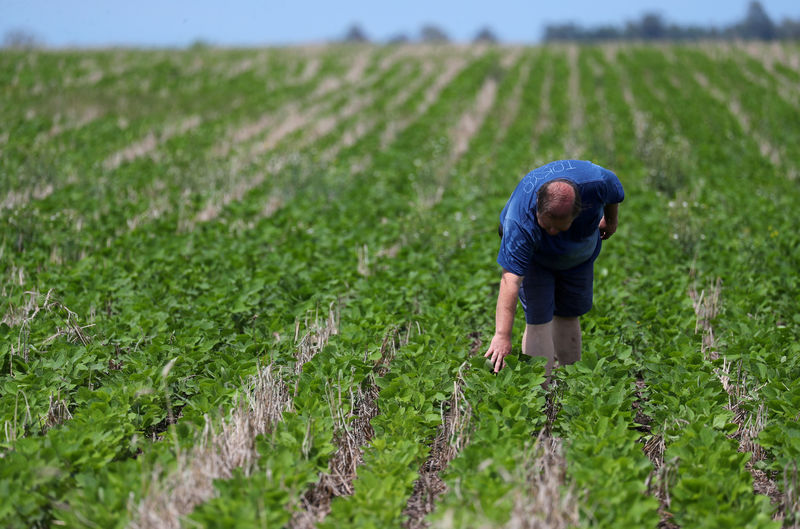By Hugh Bronstein and Maximilian Heath
BUENOS AIRES (Reuters) - China will allow the import of soymeal livestock feed from Argentina for the first time under a deal announced by Buenos Aires on Tuesday, an agreement that will link the world's top exporter of the feed with the top global consumer.
The pact will be signed by Argentine and Chinese officials in Buenos Aires on Wednesday, Argentina's agriculture ministry said in a statement. Last month Chinese officials inspected Argentine soymeal factories in the run-up to signing the pact.
Argentina had tried for years to break into the Chinese market, the biggest consumer of the meal it uses to feed its massive hog herd. China, with its own crushing industry to protect, had steadfastly resisted.
The U.S.-China trade war, however, strengthened Argentina's hand, prompting China to expand its soymeal import options, market sources say.
"This is a historic agreement," Gustavo Idigoras, president of Argentina's CIARA-CEC chamber of grains exporting companies told Reuters, though he added the deal still required a two-step process of plant authorizations and then registrations that could take several more months.
"Shipments aren't expected to start immediately."
The meal manufactured in the giant crushing plants that dot the banks of Argentina's Parana River, clustered around the country's main grains hub of Rosario, is exported mostly to Southeast Asia, Europe and Northern Africa. China imports only small amounts of soymeal currently, none of it from Argentina.
Argentina, the top global exporter of processed soy, expects to export a total of 26 million tonnes of soymeal this year globally, and 8.5 million tonnes of raw beans.
"It is excellent and timely news. Argentina needs to add more value to its exports to China and the world," said Luis Zubizarreta, president of Argentina's ACSOJA soy industry organization that represents farmers, exporters and seed firms.
The pact provided a welcome respite from the bad news that has hammered Argentina's economy in recent months. The country is in recession and inflation is expected at 55% this year.
Business-friendly President Mauricio Macri, who is facing an uphill fight for a second term in an Oct. 27 election, said the agreement would bolster jobs in the agricultural sector and create more opportunities for Argentine farmers.
"Our country is the top exporter of soybean meal and now one of the largest markets in the world has been opened," he said.
